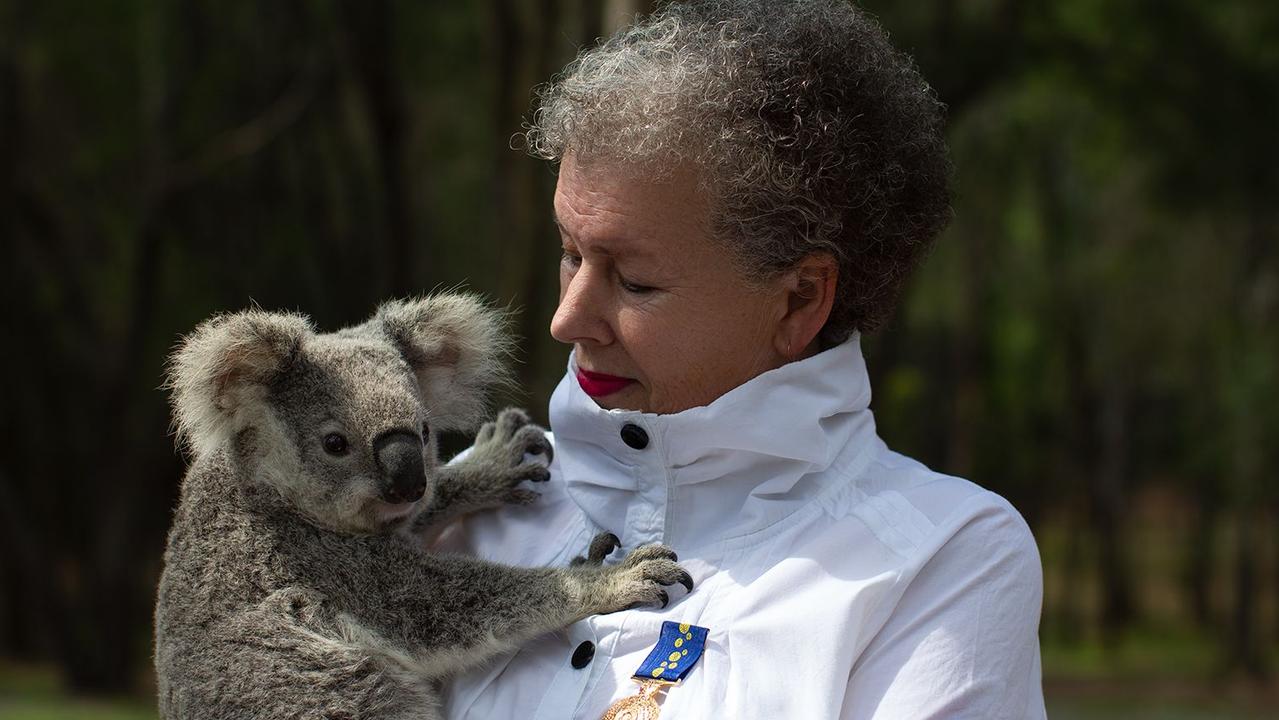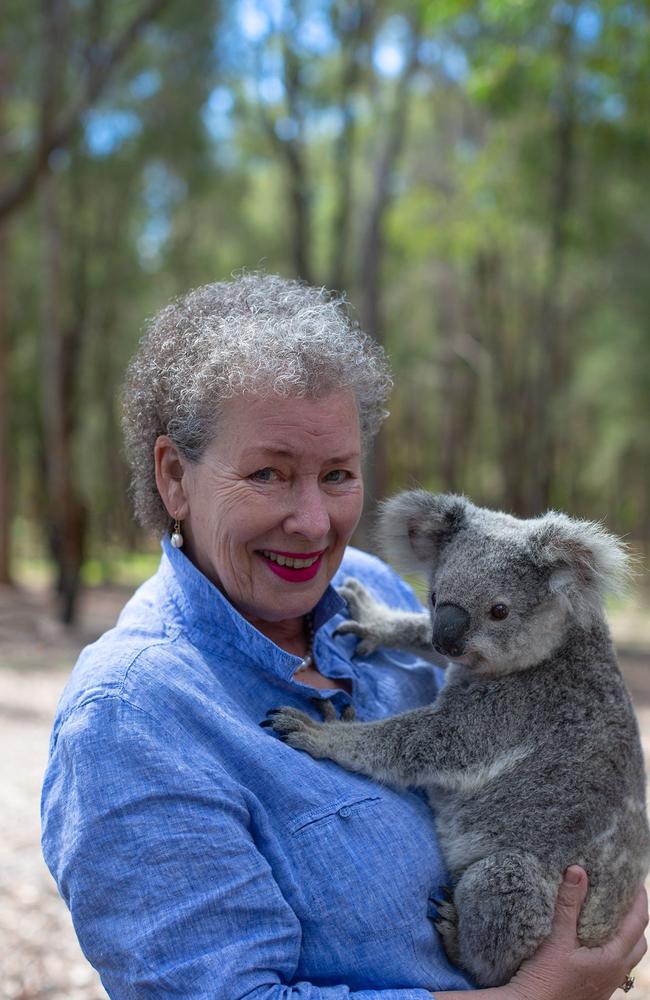Call for dramatic koala action
For 33 years, Deborah Tabart has tried to help koalas but she believes the system has failed and now wants dramatic action.
One of Australia’s most passionate protectors of koalas is calling for a dramatic overhaul of legislation and says the country is failing its wildlife.
Deborah Tabart has been a fierce defender of the koala for 33 years as the chief executive officer of the Australian Koala Foundation, and received the Medal of the Order of Australia (OAM) in 2008 for her contributions to their protection and management.
But after three decades of lobbying for change, Ms Tabart believes the system is broken and Australia’s laws are failing.
In her book The Koala Manifesto, Ms Tabart outlines dramatic changes she believes are necessary to preserve the nation’s wildlife.
“I think it’s become malevolent and I think that’s why I want a royal commission,” she told news.com.au.
“There’s no urgency in Canberra because all they are worried about is industry.”
Ms Tabart believes there should be a koala protection act to put the onus of proof on developers to prove their projects will be beneficial, rather than making communities prove it is destructive.
“If you could see how complicated it is for anyone to oppose a development,” she said.
“In my 33 years, I’ve never seen a community win.
“But I’ve seen them die of cancer, and seen them nearly go mental and have their livelihoods changed forever.”
Ms Tabart said she had met with many prime ministers over the years including Malcolm Turnbull, Julia Gillard and Kevin Rudd. In total she has met with 14 PMs, premiers and environment ministers.
“All of who have done nothing for the koalas,” she said.
“The koala is in trouble and Australia is in trouble.”
RELATED: The koala desperately needs our help

Ms Tabart’s call comes on the back of the horror Black Summer bushfire season in early 2020 that saw about 60,000 koalas affected, and about three billion animals impacted in total.
This month the Nature Conservation Council also unveiled a plan to pull koalas back from the brink of extinction and double their numbers by 2050, including adding 200,000 hectares of koala forest to the national parks estate, banning the destruction of koala habitat, ending native forest logging and setting up a $1 billion conservation fund.
“Koalas in NSW are on death row,” Nature Conservation Council Chief Executive Chris Gambian said.
“Business as usual is simply no longer an option – this is an emergency that requires drastic action,” he said, adding their numbers were already plummeting before the devastating bushfires.
Ms Tabart believes a national map is also needed to set a standard for biodiversity that should be protected.
“Until we’ve got that we can kiss the koala and other species goodbye,” she said.
She points out that koala habitat covers about 20 per cent of the country but this competes with the substantial areas of land that have mining rights over them.
Ms Tabart believes the koala is a “canary in the coalmine” that’s sounding the alarm on bigger problems including how mining and other developments are being assessed and approved.
“No one is looking at the bigger picture. If they approve a coal mine, how it will affect the river system?”
Her concern about how Australia manages its water, is why she has chosen to launch her book on World Water Day.
She said no one could tell her how many gigalitres of water was coming out of the Great Artesian Basin due to mining rights.
“I believe every industry has to be self sustaining in water,” she said.
“It’s disingenuous that political leaders can talk about water security and allow water to be traded on international markets.”
RELATED: Impact of bushfires on koala population

According to latest report on foreign ownership of water entitlements in Australia, about 10 per cent of the country’s water entitlements are owned by overseas interests, increasing slightly from 4113 gigalitres at June 30, 2019, to 4299 gigalitres in 2020.
The top for holders by country are Canada with 1.8 per cent, followed by China and the United States of America with 1.7 per cent, and the United Kingdom with 0.9 per cent of the total Australian water entitlement.
“Australia doesn’t have its water issues under control because we are trading it and we are mismanaging it,” Ms Tabart said.
Ms Tabart also does not believe forestry is sustainable if the industry continues to log native forests, which can have trees up to 1000 years old.
“What happens when they take the last one?” she asked. “Are they going to wait another 200 years for another job?”
“Why do authorities continue to accept that industry has done a good job?
“I can’t and I won’t because I’ve actually seen it with my own eyes.”
Deborah’s ‘10 Koala Commandments’
• The Koala Protection Act to be enacted into law immediately;
• A national koala mapping standard;
• Logging of native koala forests to stop, better management of plantation forests adjacent to koala habitats and cleared farmland to be regenerated;
• Call for a royal commission into the industries and individuals who have knowingly and wantonly sought to kill koala habitat and koalas;
• Call for a bill of rights for the environment;
• Call for all Australian rivers to run free, with dams only used for drinking water and essential purposes;
• Call for all rivers and tributaries to be fenced from stock and that stock routes are repaired and maintained;
• Call for all flood plains and riparian areas to be protected by law;
• Call for all industries to harvest their own water from natural rainfall; and
• Call for the cancellation of all historic water rights in Australia, with existing permit holders to prove their allocation is in the best interest of all Australians




